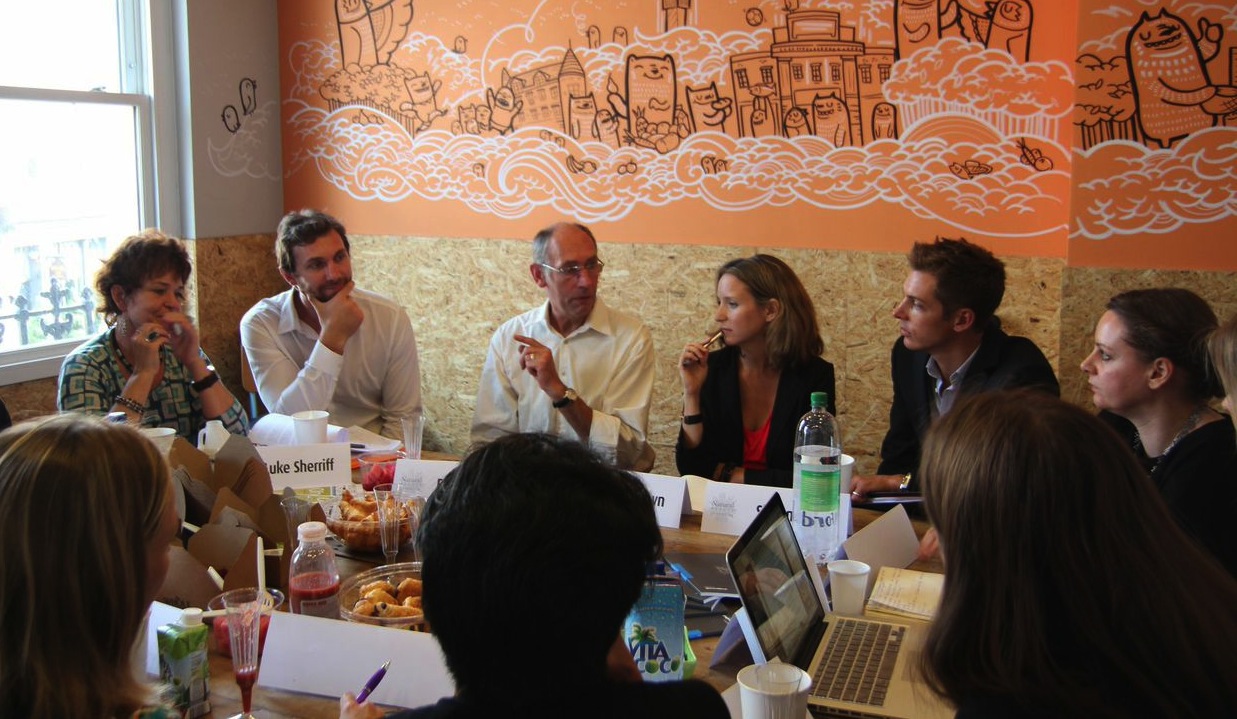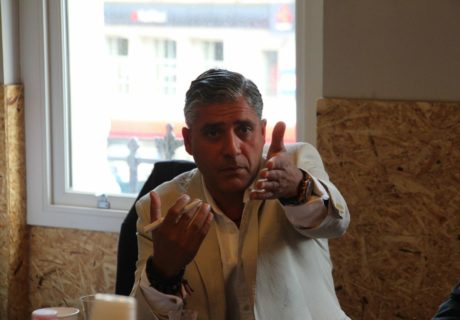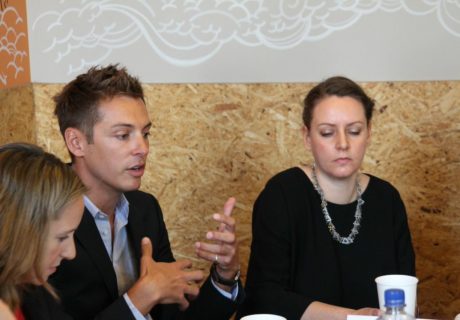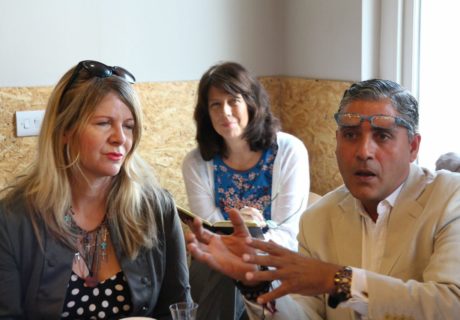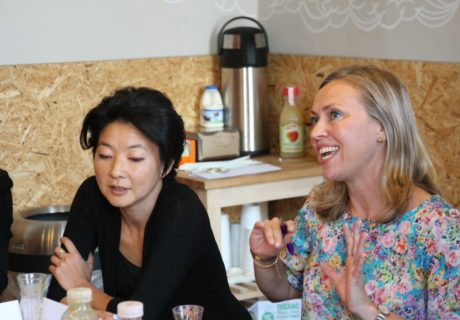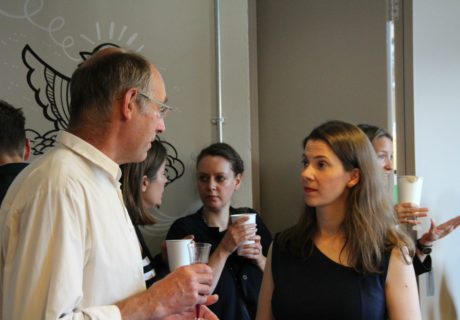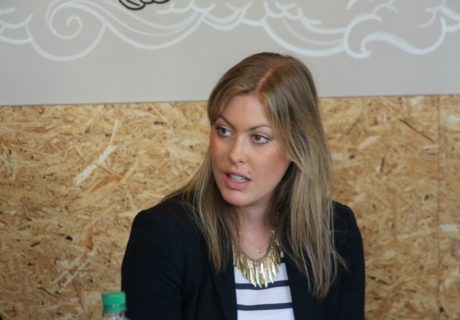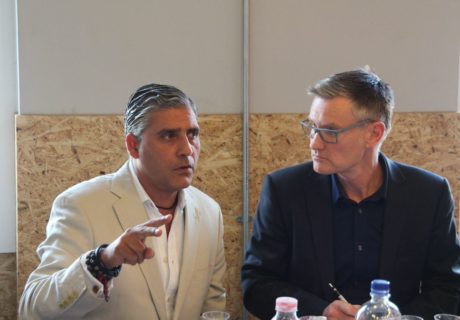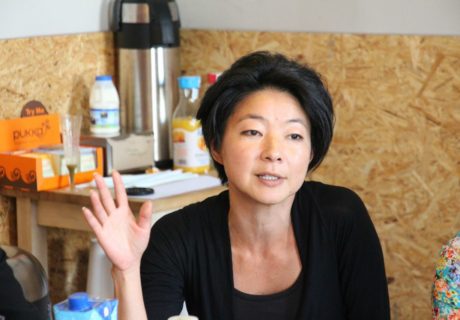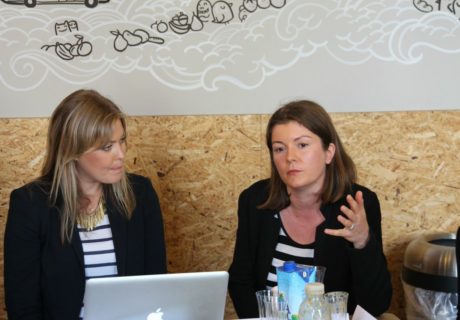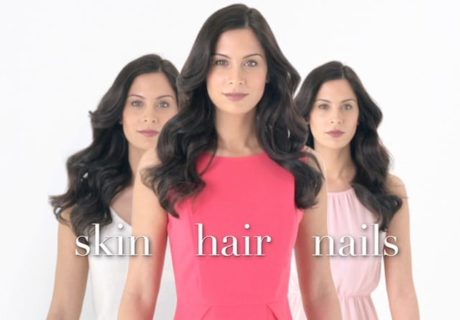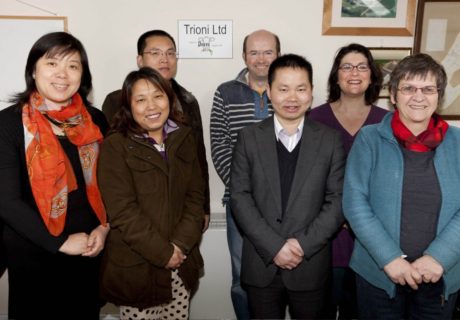Prominent figures from the natural and organic beauty industry have called for the sector to work closer together and to present a more unified voice to consumers and regulators.
The call came from representatives of leading brands, retailers and trade bodies who gathered in London yesterday for the first Natural Beauty Roundtable.
The session, chaired by Natural Beauty Yearbook editor Julia Zaltzman, generated lively discussion on a range of themes from certification issues to store listings, the ‘nature versus science’ debate to the latest consumer trends.
Discussing the challenge of breaking into the multiples, some panellists urged caution. Kim Barani, co-founder of Kinetic, said: “We all want to be in the multiples, but our brands have been born in the natural market, so we need to be very careful about how we go about it”.
Sarah Brown of Pai Skincare added: “Sometimes, dealing with the multiples means battling the ‘I’ve already got one organic brand, why would I need another?’ attitude. Some retailers got their fingers burnt in the past with natural and organic brands – because of things like packaging issues – so there are often other obstacles too”. Imelda Burke, founder of retailer Content Beauty & Wellbeing, told the group: “I don’t think they (the multiples) understand the specialist customer so well. With organic, it’s a very different type of customer.”
“I don’t think they (the multiples) understand the specialist customer so well. With organic, it’s a very different type of customer”
While there was agreement that ‘natural versus organic’ arguments were unhelpful, there was recognition of the misuse of the term natural. Sarah Brown summed up the problem: “Everyone is presenting their brand as ‘natural’, which can mean everything or absolutely nothing”. But Simon Ford, UK brand manager for Melvita, saw an opportunity: “I think there is something here that can actually help us. Yes, there are some greenwashers out there, and some less than natural products, but people who buy them often then get interested in genuinely natural and organic products.” Sonia White, founder of online natural beauty retailer LoveLula, agreed, adding that ‘natural lite’ products “start people onto genuinely natural and organic products – so they are a gateway”.
Simon Ford suggested that the specialist brands sometimes “trip themselves up” by overstating their organic and natural credentials, and forgetting other crucial attributes that are more likely to be purchasing motivators. “For us, the organic message is a secondary one”.
In a lively discussion on certification, some panellists renewed sector calls for a single logo for natural and organic brands. Julie Tyrell, of NATRUE, said this had been tried but that agreement hadn’t been reached. The big challenge, she said, was the lack of a legal definition for either natural or organic, when applied to beauty products. But she added that there was a case “for coming together as an industry to promote natural and organic – and meetings like this could be the start of that”. Sarah Brown said she would like to see “investment in some serious marketing and campaigning on certification, and what it means”.
Responding to suggestions that consumer messaging could be simpler, Francis Blake, representing standard-setter COSMOS, said that organic was “intrinsically complex, and very difficult to simplify”. In the end, he said, you have to forget that “and just do it!”
There was general agreement that the ‘science versus nature’ debate was a bit of a red herring when it came to the natural beauty sector. For Laura Rudoe, of Good Ventures, the two things weren’t mutually exclusive: “We already have fantastic natural and organic ingredients, and we’re using science to discover more about them”. Kim Barani added: “Science is nature, the only important question is whether a product is efficient and efficacious”. Imelda Burke said she uses the approach that “organic is the ultimate luxury – I try to get customers thinking ‘what could be more luxurious than ingredients found in Nature’?”
“Science is nature, the only important question is whether a product is efficient and efficacious”
Simon Ford suggested different approaches worked for different brands – and sometimes within brands. “You see quite a lot of vintage/apothecary approaches, but also some more scientific presentations. My sense is that customers will look to more pharmaceutical approaches when it comes to skincare, but less so when they are buying toiletries.”
Looking ahead to 2015, Simon Ford said that the “premium and high-end” represented the biggest opportunity for market development. For Grace Culhaci, founder of Australian organic skincare brand zk’in, it was the specialist health food and pharmacy channel. She also urged natural and organic brands to tell more “observational stories” about where products come from. Julie Tyrell agreed, adding that there was an important discussion needed on “protecting the farmers and growers on whom we all ultimately rely”.
Tracey Robinson suggested coming together “in a new retail space”. A low-rent, pop-up style space could be used for a temporary festival-style event, she said, “bringing like-minded brands together and running educational sessions to increase consumer understating of natural and organic”.
The session concluded with a pledge to meet regularly as a group and work more closely together as a sector. Julie Tyrell summed up the mood: “I think if there’s one thing we can take away, it’s the conviction that we are stronger together and that we should share our ideas and passions more freely, for the benefit of the whole sector.”
Jim Manson
• Edited highlights from the Natural Beauty Roundtable – which took place with the kind assistance of Whole Foods Market, Fulham Broadway – will form part of the editorial content of the 2015 edition of the Natural Beauty Yearbook, which publishes in November 2014.
The full list of panellists were: Francis Blake (COSMOS), Julie Tyrrell (NATRUE), Sarah Brown (Pai Skincare), Simon Ford (L’Occitane/Melvita), Luke Sherriff (Pinks), Grace Culhaci (zk’in), Kim Barani (Kinetic), Sonia White (LoveLula), Laura Rudoe (Good Ventures), Janey Lee Grace, Imedla Burke (Content), Tracey Robinson (Vert PR), Jim Manson (editor, Natural Products)


